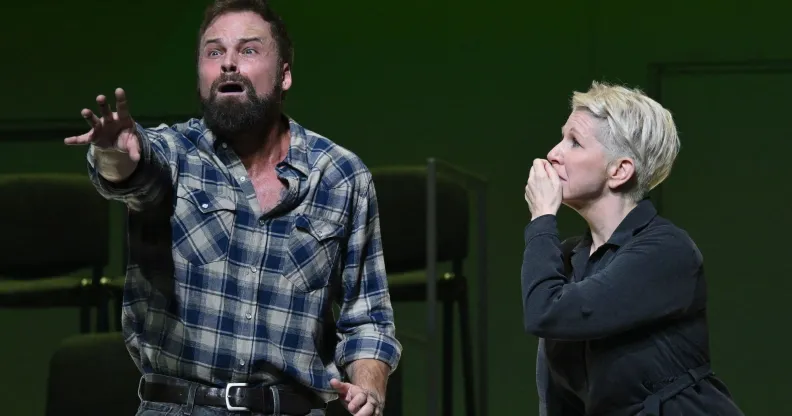A North Carolina radio station, WCPE, has ignited a firestorm of controversy by refusing to broadcast a set of contemporary operas from New York’s Metropolitan Opera 2023-24 season, citing concerns over “non-biblical sources” and LGBTQ+ themes. This decision comes at a time when the Met Opera has made a commitment to feature diverse works from marginalized groups.
The listener-supported classical station, WCPE, recently announced its decision to exclude six operas from the Met Opera’s 2023-24 season due to what it deems “inappropriate content.” In a letter addressed to station patrons, Deborah Proctor, WCPE’s general manager, explained the rationale behind the decision. She expressed a desire to cater to listeners of all age groups, ensuring that parents can leave the station playing for their children without encountering mature themes or foul language.
Proctor went on to provide specific reasons for refusing to play each of the seven operas, with one of them, “El Niño,” being described as having “non-Biblical sources” and criticized for leaving “nothing to the imagination” in terms of music and vocalization.
Controversy and Public Backlash
WCPE’s decision has not gone unnoticed, with reports indicating that the station has received over 1,000 responses from its 10,000 members regarding the controversial move. Deborah Proctor emphasized the distinction between broadcasting these operas to a general audience and presenting them as ticketed events for willing attendees.
The station’s decision to exclude these LGBTQ+ themed operas has ignited a storm of criticism on social media platforms, with many condemning it as an act of censorship. Longtime listeners of WCPE expressed their disappointment, with some announcing their intentions to seek alternative stations for classical music.
As the controversy unfolds, it underscores the ongoing debate about artistic freedom, censorship, and the place of LGBTQ+ themes in the world of classical music.
Impact and Future Implications
The refusal of WCPE to broadcast LGBTQ+ themed operas raises questions about the intersection of art and censorship in today’s society. It remains to be seen how this controversy will influence the station’s future programming decisions and whether it will lead to broader discussions about inclusivity and representation in the arts. As the Met Opera continues its commitment to showcasing diverse works, this incident serves as a reminder of the complexities surrounding cultural acceptance and artistic expression in the modern world.

